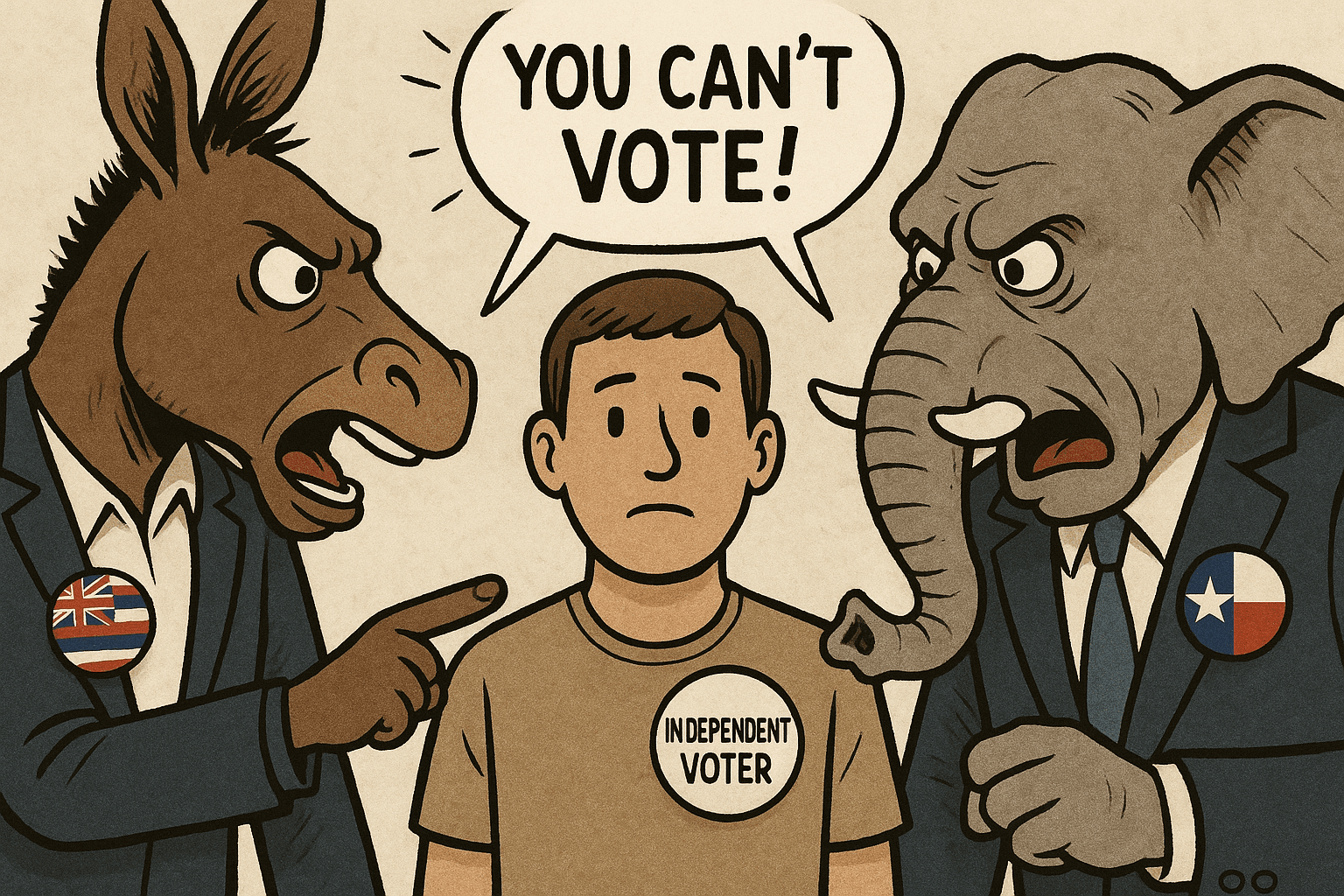Will the Texas Republican Party be Successful Where the Hawaiian Democratic Party Failed?

AUSTIN, Texas - The Republican Party of Texas (RPT) is suing Secretary of State Jane Nelson in an effort to close the state’s primary elections to party members only – a move that the Democratic Party of Hawaii (DPH) tried back in 2013 in its state and failed.
The State Republican Executive Committee reaffirmed the party’s commitment to have primary elections that bar non-members back in June. The problem? Texas law requires open primaries, and the state does not register voters by party.
In state primaries, any registered voter can choose between a Republican or Democratic ballot each election cycle. While they do not register with a party, their voter file is essentially stamped with the party they chose for the remainder of that cycle.
This ensures that voters who pick one party’s ballot cannot vote in the other party’s primary as well or vote in a different party’s runoff elections.
A change to primaries in Texas would require the state legislature to amend election law or a court decision that finds the current law unconstitutional and allows the party to use its own registration and verification processes to identify party members.
The Texas GOP asserts that open primaries violate the party’s First Amendment associational rights. “Our primaries should reflect Republican values—not outside interference,” said RPT Chair Abraham George.
This same argument was used by Democrats in Hawaii back in 2013. In fact, both parties make identical claims, from citing First Amendment protections to asserting that crossover voting dilutes the voices of party members.
George said, “This is not just about a rule change—it’s about protecting the integrity of our elections and defending the voice of our conservative base,” which sounds awfully similar to former DPH Chair Dante Carpenter, who said:
The lawsuit isn't about excluding voters, but ensuring Democrats are selected at the primary stage by those willing to identify as Democrats.”
But the courts didn’t agree with the DPH.
In November 2013, District Court Judge Michael Seabright ruled that the Democratic Party failed to provide sufficient evidence that open primary elections in Hawaii violated the First Amendment.
“The DPH would likely not be ‘severely’ burdened by not being able to reject persons who fully embrace its values. The possibility of crossover voters might make no difference,” Seabright wrote in his decision.
This ruling was then upheld by the Ninth Circuit Court of Appeals.
Parties often use “crossover voting” as an argument to close primary elections, which occurs when members of a party vote in the other party’s primary. Party leaders claim this is a common scheme to sabotage primary results in order to advance a weaker candidate
Or, a candidate that isn’t as “pure” in party politics.

DPH argued that crossover voting could happen but offered no evidence that it actually did happen or happened to such a degree that it impacted elections. Now, the Texas GOP will attempt to convince a court that their primaries are being sabotaged by non-members.
As an example, the party uses two 2024 primary elections for Texas House in which the winners – Dade Phelan and Gary VanDeaver – won with less than 800 votes. The party asserts that the only reason they won is because of Democrats and independent voters.
The question is: Can they prove it, or will they fail like the DPH?
It is worth mentioning that if the RPT is successful in closing primary elections in Texas, it will deny approximately 3 million independent voters access to critical public elections, according to numbers from L2 Data that are published on the Independent Voter Project's website.
 Shawn Griffiths
Shawn Griffiths






